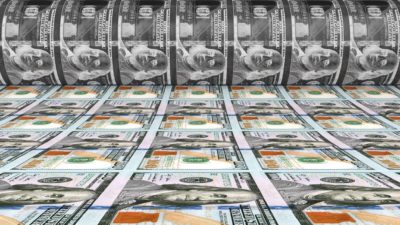Turkey may be thousands of miles away, but you won't need to look far to witness the impact of the economic fallout from its problems.
The S&P/ASX 200 (Index:^AXJO) (ASX:XJO) index is under pressure today as it dropped 0.5% on news that Turkey's economy is at risk of collapsing after US President Donald Trump doubled tariffs on some of its exports to the US.
You might be puzzled by this given how removed Turkey is from Australia and the size of its economy, which is around 30% smaller than Australia, although this gap is set to widen in light of the latest developments, but economists are warning of contagion.
There are two main impacts on our share market from this contagion. The first stems from the global banking system with Bloomberg estimating that European banks have around US$150 billion in loan exposure to the country.
Turkish borrowers will find it increasingly difficult to repay loans as its economy sinks (it was already in trouble before the latest Trump threat) and as its currency nosedives to record lows against the greenback.
There are fears that Turkey's economy is on the verge of collapse as it is heavily dependent on foreign debt, which it has used to fund construction of roads to shopping malls.
To make matters worse, its president Recep Tayyip Erdogan is preventing his central bank lifting interest rates to help rebalance the economy. He may have little choice though as experts believe Turkey will need the IMF to bailout the country and the IMF may insist that its central bank be allowed to work independently.
European banks' exposure to Turkey could create counterparty risks that impact on the rest of the global financial system. This will drive up funding costs for our banks, such as Commonwealth Bank of Australia (ASX: CBA) and Westpac Banking Corp (ASX: WBC), as they too are heavily reliant on international wholesale markets for capital.
I don't think this is a high risk as the amounts are not particularly large and the European Central Bank will be able to ensure the integrity of the system even though some of its listed banks may suffer painful haircuts. Thankfully, this is no "GFC".
The second impact is on global exchange rates and this is a more serious issue. The plunge in the lira is dragging down other emerging market currencies like the African rand and is pushing the US dollar higher.
While we are no emerging economy, our dollar is suffering given how exposed Australia is to the export market.
Our market may be falling but it's our currency that is the real loser as the Aussie hits an 18-month low below US73 cents.
I think the Aussie will lose more ground and this reinforces one of my key investment themes for 2018 – which is to have a bias for stocks with material US dollar exposure.
Some of these stocks include logistics group Brambles Limited (ASX: BXB), building materials company Boral Limited (ASX: BLD) and gaming machine maker Aristocrat Leisure Limited (ASX: ALL).
On the flipside, direct importers like furniture retailer Nick Scali Limited (ASX: NCK) and home and personal care products supplier McPherson's Ltd (ASX: MCP) are likely to feel some margin pressure from the exchange rate.
But there's another stock with a large US dollar exposure that is set to outperform, according to the experts at the Motley Fool.
This stock has already enjoyed a strong rally but they believe this momentum is set to continue through FY19.
Click on the free link below to find out what this stock is.







